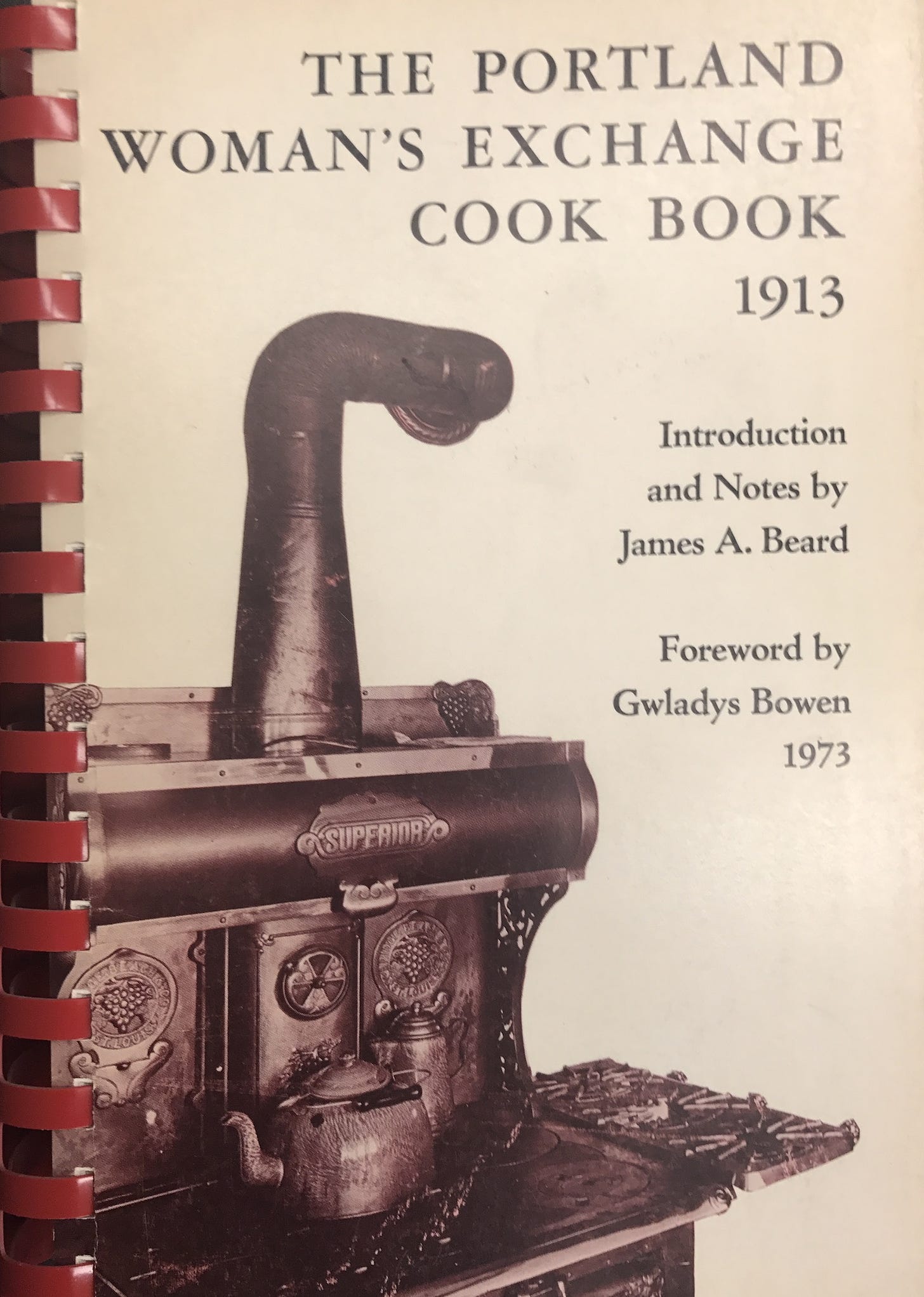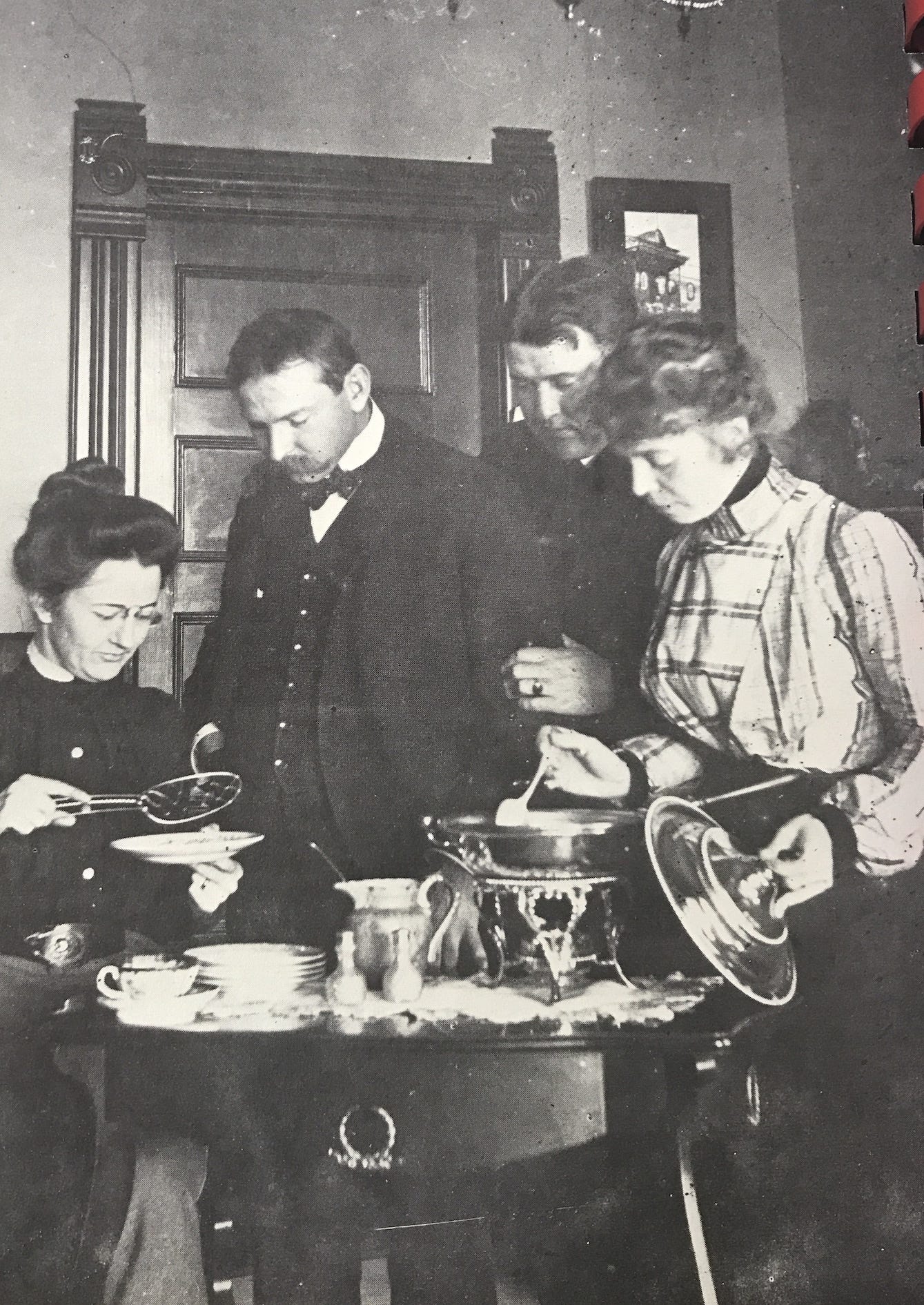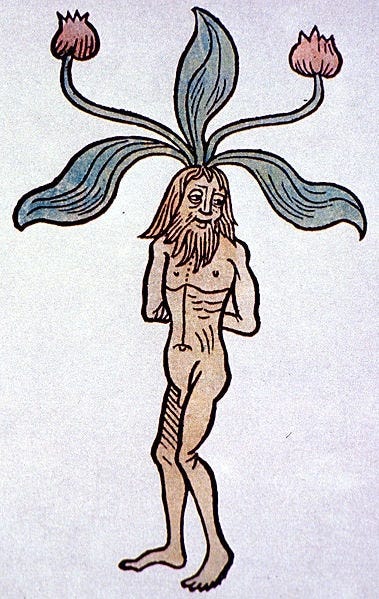Hop Bitters, Potato Caramel Cake and One Strange Curry

Here's another cookbook from Portland, Oregon, a 1973 reprint of a 1913 cookbook published by the Portland Woman's Exchange. As James Beard reminds us in the introduction (Beard was born and raised in Portland), the Woman's Exchange was a national movement dedicated to providing otherwise unemployed people with a market for their crafts. (When Beard wrote the introduction, the New York Woman's exchange still existed).
Of the Portland Woman's exchange, where the pictures below were taken, Beard writes:
I remember it as an old residence on Fifth Street, where it ran a small restaurant and sold excellent food, such as English crumpets and muffins, wonderful cakes, beautiful candies, and other items that could be ordered specially.
This rich (and perplexing) scene features a table-side chaffing dish:

A lovely teaching environment: Many of the book's recipes have a distinct West Coast flair. I wonder how easy it was to get coconuts in 1913 Portland:
Here's a mulligatawny-inspired approach to eggs: Mashed potato in cakes:
And this astonishing recipe for bitters gives you a glimpse of an era when sugar was still sold in huge loafs, and housewives mixed up herbal tonics. (The closest thing I can find to Buchn is the "buchu" plant native to South Africa.) In all the early 20th century cookbooks I've perused, I've never encountered anything quite like this:
Curious about mandrake? This Matt Simon article, about the hallowed root is worth a read. Medieval Europeans believed that mandrake uttered a blistering scream when it was uprooted. (See below.)

And for fun, here's an old sugarloaf, which fell out of production in the United States in the late 19th century with the rise of granulated sugar. The nips next to it were used to cut it:



